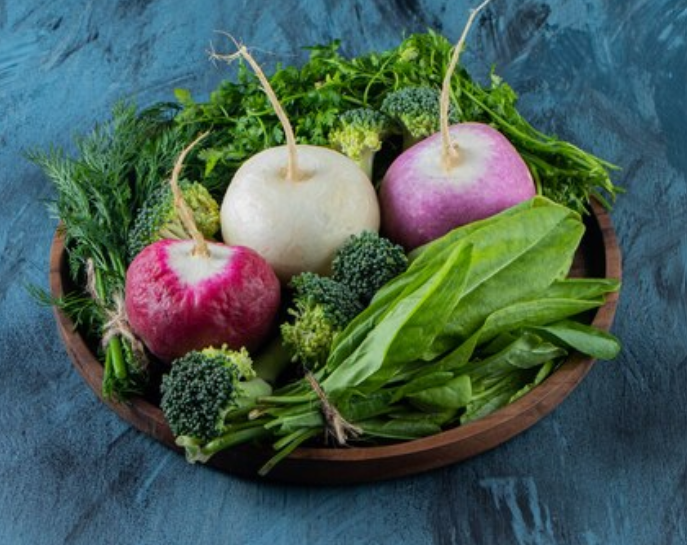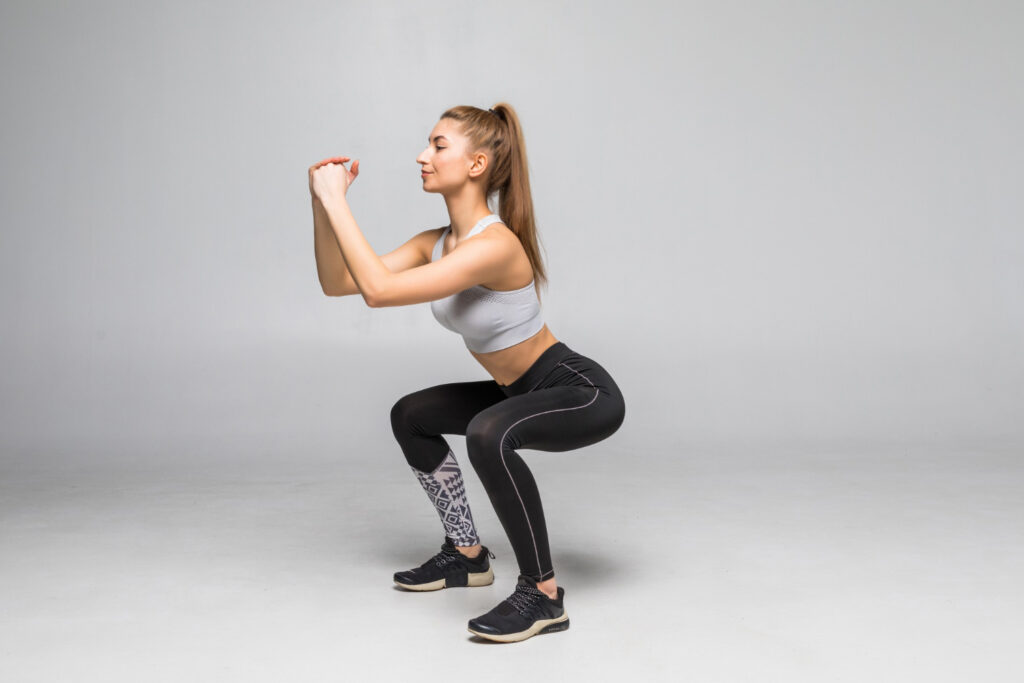We will discuss here how to relieve bloating in our effort to make you aware of the current life scenario, the foods, and habits where in the relentless pursuit of a healthy lifestyle, understanding the intricacies of nutrition is paramount.
Bloating, an often uncomfortable sensation, can be attributed to various factors, with dietary choices playing a significant role. In this comprehensive guide, we unveil the foods that can cause bloating, providing you with essential insights to make informed decisions for a bloat-free life.
The Bloat Culprits
- Carbonated Beverages
Fizzing with flavor, carbonated beverages may seem harmless, but the bubbles can wreak havoc on your digestive system. The release of gas during consumption can lead to bloating and discomfort.
- Cruciferous Vegetables
While packed with nutrients, vegetables like broccoli, cauliflower, and Brussels sprouts contain raffinose, a complex sugar that can ferment in the gut, causing bloating. Learn how to balance your veggie intake for optimal health.
- Legumes
Beans, lentils, and chickpeas are excellent protein sources, but they also contain oligosaccharides, known for causing gas. Discover cooking methods that can minimize these effects without compromising on nutrition.
- Dairy Products
Lactose intolerance affects many, leading to bloating and discomfort after dairy consumption. Explore lactose-free alternatives and dairy digestion aids for a happier gut.
- Artificial Sweeteners
Low-calorie sweeteners might seem like a guilt-free choice, but some can disrupt your gut bacteria, causing bloating. Uncover the artificial sweeteners to avoid healthier alternatives.
- Processed Foods
Packed with sodium, preservatives, and additives, processed foods can contribute to water retention and bloating. Discover the art of label reading to make mindful choices for a bloat-free diet.
- High-Sodium Foods
Excessive sodium intake can lead to water retention, causing bloating. Learn how to navigate the grocery aisles for low-sodium options and adopt healthier seasoning alternatives.
- Fried and Fatty Foods
Indulging in fried and fatty delights can slow digestion, leading to bloating. Find healthier cooking methods and alternative sources of good fats to satisfy your taste buds without the bloat.
- Alcohol
While a social lubricant, alcohol can dehydrate your body and cause bloating. Explore moderation strategies and hydrating practices to enjoy a night out without the morning-after discomfort.
- Chewing Gum
Surprisingly, the act of chewing gum can introduce excess air into your digestive system, leading to bloating. Opt for sugar-free, gut-friendly alternatives if you can’t resist the urge to chew.
- Salty Snacks
Your favorite bag of chips might be a tasty snack, but the high salt content can contribute to bloating. Discover snack alternatives that satisfy your cravings without causing discomfort.
- Certain Fruits
While fruits are a vital part of a healthy diet, some high-fiber fruits like apples and pears can cause bloating. Learn to balance your fruit intake to support digestion.
- Spicy Foods
Spices can add zest to your meals, but they may also irritate your digestive tract, leading to bloating. Explore milder spice options and cooking techniques for a flavorful, bloat-free experience.
Bloating can be an uncomfortable and bothersome experience that many individuals face. In this comprehensive guide, we’ll explore effective strategies to relieve bloating and restore comfort to your abdomen.
Understanding the causes of Bloating
Finding the root causes of bloating is crucial for effective relief. Common culprits include:
- Dietary Choices: Certain foods, such as beans, lentils, and cruciferous vegetables, can lead to bloating.
- Digestive Issues: Conditions like irritable bowel syndrome (IBS) or lactose intolerance may contribute to abdominal discomfort.
- Fluid Retention: Excessive sodium intake can lead to water retention, causing bloating.
Incorporating a Balanced Diet
A diet rich in fiber, lean proteins, and probiotics can aid in digestion and reduce bloating. Consider these dietary adjustments:
Fiber-Rich Foods: Whole grains, fruits, and vegetables promote regular bowel movements and alleviate bloating.
Probiotics: Yogurt, kefir, and fermented foods support a healthy gut, reducing the likelihood of bloating.
Staying Hydrated
Adequate hydration plays a crucial role in preventing and relieving bloating. Ensure you drink enough water throughout the day, as dehydration can exacerbate abdominal discomfort.
Mindful Eating Habits
Chew Your Food Thoroughly
Proper chewing aids in the digestion process and minimizes the risk of bloating. Take the time to savor each bite and allow your digestive system to work efficiently.
Avoid Overeating
Overindulging can strain your digestive system, leading to bloating. Practice portion control and listen to your body’s hunger cues to prevent discomfort.
Herbal Remedies
Peppermint Oil
Known for its soothing properties, peppermint oil can help relax the muscles of the gastrointestinal tract, providing relief from bloating.
Ginger Tea
Ginger possesses anti-inflammatory properties that can ease bloating and promote healthy digestion. Enjoy a cup of ginger tea after meals for optimal results.
Physical Activity
Engaging in regular physical activity promotes healthy digestion and reduces bloating. Incorporate exercises like walking, jogging, or yoga into your routine to keep your digestive system functioning smoothly.
How to relieve bloating fast?
Bloating usually happens when excess gas builds up in the stomach or intestines. When bloating occurs right after a meal, it usually resolves itself, but it is often possible to speed up this process.
Some remedies can help to manage the pain and discomfort of bloating. By following these quick tips people can get rid of a bloated stomach quickly:
Prefer a 30-minute Walk
Physical activity can get the bowels moving more regularly, which can help to release excess gas and stool. Getting the bowels to move is especially important if a person is feeling constipated. A walk around the corner can provide instant relief from gas and stomach pressure.
Embrace yoga
Certain yoga poses can position the muscles in the abdomen in a way that encourages the release of excess gas from the GI tract. This can reduce bloating.
Child’s Pose
Squats
These yogic poses practiced regularly will surely help you to relieve a buildup of gas pressure quickly. Learn more about yoga poses for flatulence.
Usage of peppermint capsules
Peppermint oil capsules are also helpful for indigestion and related gas issues. Sellers and dealers usually market them as a treatment for the symptoms of irritable bowel syndrome (IBS), but people without IBS can also use them to relieve bloating.
Peppermint relaxes intestinal muscles, which allows gas and stool to move along more efficiently and effectively. People should always follow the instructions on the packet.
*Caution: Peppermint is not advisable in heartburn issues, so avoid and search for an alternative.
Try gas relief capsules
Simethicone pills and liquid are anti-gas medications that can help to move excess air out of the digestive tract. It is essential to always take medication according to the instructions on the label.
Try abdominal massage
Massaging the abdomen can help to get the bowels moving. A massage that follows the path of the large intestine is especially helpful. People can follow the steps below to do this:
- Placing the hands just above the right hip bone.
- Rubbing in a circular motion with light pressure up toward the right side of the ribcage.
- Rubbing straight across the upper belly area toward the left rib cage.
- Moving slowly down toward the left hip bone.
- Repeating as necessary.
*If you experience any discomfort during the massage, it is advisable to stop immediately.
Incorporate essential oils
Incorporate essential oils into your routine. In a 2016 study involving 116 individuals with mild-to-moderate IBS, supplements combining fennel and curcumin essential oils were found to be effective. Participants reported an improvement in IBS symptoms, including bloating and abdominal pain, after 30 days.
However, it’s crucial to consult with a doctor before using essential oils. Some formulations may be toxic or interact with medications, and there is a lack of regulation regarding dosages. It’s essential to prioritize safety and seek professional advice when considering the use of essential oils.
Preferring A Warm Bath:
Immerse yourself in a comforting warm bath, allowing for a relaxing soak. The warmth of the bath not only offers solace for a tender abdomen but also plays a pivotal role in alleviating discomfort. Beyond the physical benefits, this serene experience promotes relaxation, effectively lowering stress levels. Reduced stress can contribute to enhanced GI tract functionality, potentially aiding in more efficient digestion and, consequently, assisting in the reduction of bloating. Embrace the therapeutic effects of a warm bath as part of your self-care routine for comprehensive well-being.
How to relieve Bloating in Ayurveda
The Role of Doshas
Ayurveda attributes bloating to an imbalance in the three doshas: Vata, Pitta, and Kapha. Identifying your predominant dosha can guide you toward personalized remedies.
Common Causes According to Ayurveda
- Imbalanced Diet: Consuming incompatible food combinations or overeating can disturb the doshic balance, leading to bloating.
- Weak Agni (Digestive Fire): A compromised digestive fire contributes to incomplete digestion, causing bloating.
- Toxic Buildup (Ama): Accumulation of undigested toxins in the digestive tract is a key factor in bloating.
Ayurvedic Dietary Guidelines (Embracing a Sattvic Diet)
- Fresh and Organic: Choose fresh, organic foods to support optimal digestion.
- Digestive Spices: Incorporate cumin, coriander, and fennel in your meals to enhance digestion and reduce bloating.
Fasting and Detoxification
Periodic fasting and detox practices, such as Panchakarma, help eliminate toxins, promoting a healthy digestive system and alleviating bloating.
Herbal Ayurvedic Remedies
Triphala
A traditional Ayurvedic formula, Triphala, composed of three fruits, supports digestion, detoxification, and the reduction of bloating.
Ajwain (Carom Seeds)
Ajwain possesses carminative properties, making it effective in relieving gas and bloating. Chew a small amount or consume it with warm water for relief.
Ayurvedic Lifestyle Practices
Abhyanga (Oil Massage)
Regular self-massage with warm oil, especially sesame oil, improves circulation and aids digestion, preventing bloating.
Yoga and Pranayama
Incorporate yoga postures and pranayama (breathing exercises) into your routine to balance the doshas, improve digestion, and reduce bloating.
Adopting these strategies effectively relieves bloating and boosts overall well-being. Make gradual changes, consult a healthcare professional if needed, and embrace a healthy lifestyle for lasting comfort and vitality.
For a bloat-free life, understand how specific foods impact your digestion. Choose wisely, explore alternative ingredients, and say goodbye to bloating.
Ayurveda also provides a holistic approach to addressing bloating through dietary adjustments, herbal remedies, and lifestyle practices. Embrace Ayurvedic wisdom for a balanced digestive system and overall well-being. Consult an Ayurvedic practitioner for personalized guidance based on your unique needs.
Read More >>https://trenditweetz.com/snoring-hacks/
Image Credits: Freepik




















